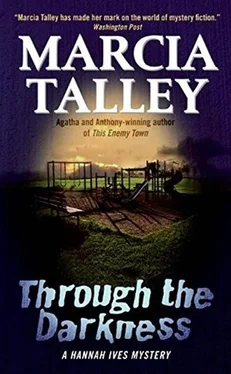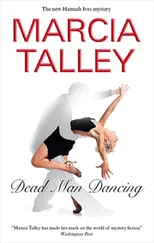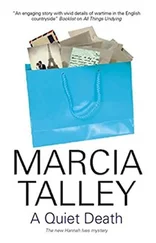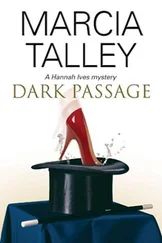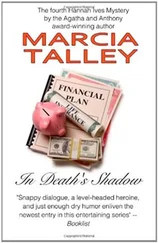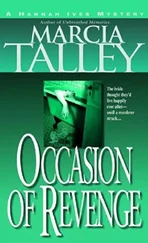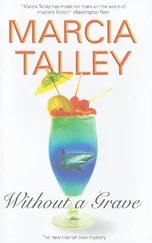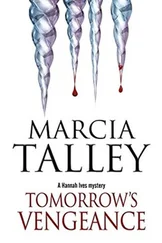“It is rather generic,” I observed, looking up from my copy of Roger’s note. “And it doesn’t mention you specifically, Eva, which I find pretty curious.”
“It certainly doesn’t sound like Roger.” Eva tapped the note with her index finger. “‘It has come to my attention that’ is just a bit stuffy, even for Roger.”
“The police analyst has determined I wrote it,” Cassandra said. “They’ve got all my word processing files, so I suppose they can prove it in a court of law. Apparently I use phrases like ‘it has come to my attention’ with a statistical probability of twenty-seven percent over samples of writing chosen at random from among the general population, or some such nonsense. But their analyst is dead wrong.”
“This troubles me, though,” Eva interjected. “Roger never learned how to spell ‘desperately,’ and he’s misspelled it here, too. But this, I think, is the clincher.”
“What?”
“‘To quickly end it,’” she quoted. “Roger was a stickler for grammar. The poor man couldn’t split an infinitive if his life depended on it.”
Eva grimaced, as if realizing that the tired old cliché had sudden meaning. She looked from Cassandra to me, tears glistening in her eyes. “Roger wrote this note himself, didn’t he? For whatever reason, Roger wrote the note.”
“I’m afraid so,” I said.
“But why?” Tears rolled down her cheeks and splashed, unheeded, on her blouse.
“You gave me the answer yourself a couple of days ago, Eva.”
“I did?” she sniffled.
From the chaos on her office shelves, Cassandra managed to unearth a box of tissues and hand them to her.
“Yes. You told me that Roger had recently taken out a life insurance policy, and that if he committed suicide, it would be worthless.”
Dabbing at her nose with the tissue, she nodded.
“So try this on for size. Suppose that Roger, in his distress over being outed on national television, in fear of being branded as a kidnapper, thereby heaping more disgrace on you, even threatening your job and your calling to the priesthood…” I paused to take a breath. “Suppose Roger decided to kill two birds with one stone.”
From her desk chair Cassandra muttered, “I don’t get it.”
“Okay. Roger has two problems.” I held up a finger. “First, he wants to make sure the wife he loves and who he has so grievously wronged gets the money that’s coming to her.” I held up two fingers. “And second, he wants to punish the boss he believes wronged him, by firing him without provocation.”
“I still don’t get it.”
“I believe Roger faked his own murder, then tried to frame you for it.”
“My God,” Cassandra said.
Next to me, Eva closed her eyes. Her lips moved and I knew she was praying.
I waited until Eva had opened her eyes again before I said, “And I think I can prove it.”
“How?”
“All the time you were typing, Cassandra, I kept looking at your desk and thinking that something’s not quite right.”
I pointed out the spot where a coffee stain, dried up but still sticky, had spread across Cassandra’s blotter and onto the metal surface of the desk itself. Brownish splatters from the spill extended to her monitor and her mouse, but her keyboard was suspiciously clean.
“How did you manage a coffee spill the size of the Exxon Valdez ,” I asked her, “and not get a single drop of coffee on your keyboard?”
Using my fingers, I picked the keyboard up carefully by the edges and displayed it for them. “See? Pristine.”
Eva’s eyes grew wide. “So you think Roger…?” She paused. “Sweet Jesus, that’s monstrous.”
“I believe that Roger typed the note, then, probably wearing gloves, switched Cassandra’s keyboard for his own.”
I looked at Eva, Eva looked at me, and we both looked at Cassandra. We practically stumbled over one another in our haste to get back to Roger’s office and check out my theory.
As I suspected, the keyboard now sitting on Roger’s desk bore telltale specks of dried-up coffee. “Don’t touch it,” I warned. “The cops will want to test it for DNA.”
“DNA?” Cassandra looked puzzled.
“When we type, we leave behind skin cells, bits of hair, particles of fingernail. DNA analysis will prove that the keyboards were switched. Much more conclusive than coffee stains.”
Eva fell back against the wall, grabbing the door frame for support. “If Roger wanted to take his own life, that was certainly his prerogative,” she said. “But it was very, very wrong of him to try to place the blame on somebody else.” Eva winced, as if in pain, and I knew she was probably worrying about the state of Roger’s immortal soul.
“Roger was mentally ill, Eva. He can’t be held accountable, at least not in that way.”
“I wouldn’t have kept the insurance money, anyway,” she muttered.
Cassandra brightened. “You could have given it to charity.”
I glared. I’d just saved the woman’s ass, and she was being glib.
“Well,” Cassandra said, picking up on my unspoken message. “I was simply suggesting that it would be nice if some good were to come out of all this.”
“Shut up, Cassandra,” I said.
From across the room, for the first time in many, many days, Pastor Evangeline Haberman actually smiled.
Roger’s death was ruled a suicide. Cassandra was cleared.
Featured in the July issue of Spa magazine, Paradiso continued to thrive, but the same wasn’t true of the Shemansky marriage.
To be fair to my son-in-law, he was as clueless, I believe, as the rest of us. It took an article in the Sunday supplement of the Philadelphia Inquirer to clear up some of the mystery surrounding the Barnhorst case. While remaining mute for the cops, Joanna Barnhorst had spilled all for a reporter who showed up at the federal prison, serious cash inducements in hand.
Dante’s college relationship with Joanna had been common knowledge. No one disagreed with that. Then Dante had ended the affair and abandoned her-Barnhorst’s words, not Dante’s-for a life in Colorado with my daughter.
What nobody knew, except Joanna and her gynecologist, was that Joanna had been three months’ pregnant at the time.
Barnhorst claimed in the article that she’d informed Dante of the pregnancy, but he’d dropped out of school and fled, rather than face up to his responsibilities and a shotgun marriage to a woman he no longer loved.
She’d had no choice (the reporter wrote that Joanna sobbed uncontrollably for some twenty minutes at this point) but to terminate the pregnancy. Later, when Joanna Kerr married and became Joanna Barnhorst, she found she could no longer have children. When her husband divorced her for that, the article claimed, it had sent the poor girl reeling right over the edge.
“That’s bullshit!” Dante exploded when he learned about the pregnancy. “She never said a word to me, not a fucking word.” He shook his head, his ponytail flopping. “Besides, I always used a condom. Always.”
Emily glowered. “Condoms don’t always work, you bonehead.”
The Pennsylvania State Police, we learned from the article, had confirmed the surgical procedure, but she’d not named the child’s father at the time. After all these years, there was no way to prove whether the child Joanna aborted had been Dante’s.
“If she had only told me,” Dante continued, “all this, uh, unpleasantness might never have happened.”
Dante was making a good point. Why hadn’t Joanna told him about her pregnancy? I wondered. I thought back to my own college days, trying to put myself in Joanna’s shoes. Either the child wasn’t Dante’s, as he so clearly wanted to believe, or she had been afraid to tell him about the baby.
Читать дальше
